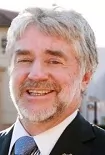At this election we should be erecting a statue of Herbert Payne out of gratitude for his single great contribution to Australia – but very few of us know who he was, or what he did.
Ninety two years ago Herbert Payne was a little known conservative grazier and Nationalist Party Senator from Tasmania. He was a quiet man, but without him a large proportion of Australian society wouldn't have a voice in the nation.
Until 1924 people didn't have to vote. Australia had already pioneered several aspects of democracy including compulsory enrolment for voting in 1912, universal adult suffrage, the secret ballot and popularly elected upper houses.
Payne was shocked at the low voter turnout in the 1922 election of just 59 per cent. He thought parliament had to represent all the people, not just those who bothered to vote.
On a slow winter day in 1924, Senator Payne made one of his rare speeches as he introduced his private bill, the Commonwealth Electoral Bill. Payne explained it made voting compulsory, as voting was both a right and a duty for all Australians.
His Bill was barely noticed, and slipped through parliament in just a few hours. Nobody voted against it. From then on voting was compulsory. Turnout at the 1925 election was 95 per cent. Since then voting turnout in Australia has been the highest in the world.
If we weren't forced to vote under threat of fines it's likely Australia's turnout would be in line with the US where just 55 per cent bothered to vote in 2012. Turnout has been as low as 49 per cent. This means the next US President will be elected by just 30 per cent of adult Americans. In the UK, just 66 per cent voted in 2015.
Maurie Stack OAM, chairman of Stacks Law Firm, has seen the consequences for societies with low voter turnout.
"People who don't vote when it is optional tend to be the poor, the uneducated and socially disadvantaged," Mr Stack said.
"If these people don't vote, politicians can afford to ignore them. I saw in the US whole families living on the street because social security cuts out after two years, no matter what. After that you're on your own. The simple fact is, if a group of people don't vote, that group doesn't count.
"In Australia our politicians can't ignore the needs of the disadvantaged because they vote. We have ended up with a strong support system of social welfare and have a better society as a result. Herbert Payne deserves our gratitude and a statue."
The content of this article is intended to provide a general guide to the subject matter. Specialist advice should be sought about your specific circumstances.

